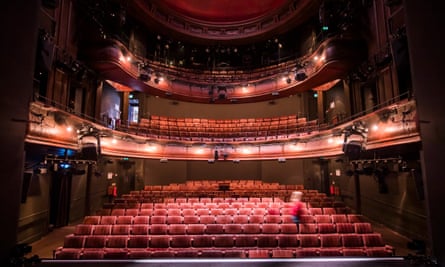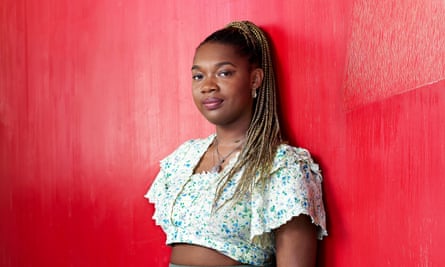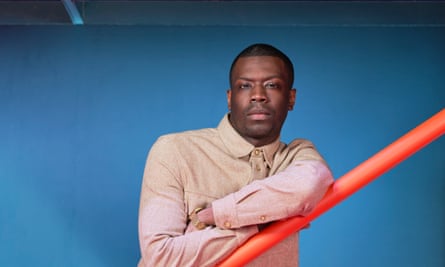David Byrne, the artistic director of the Royal Court theatre in London, has called for the next government to create a “rescue package” to keep young people in the arts or risk losing a generation of playwrights who cannot afford to stay in the sector.
In his first major interview since taking over in January, Byrne called for an urgent intervention to support younger artists, particularly those from black, disabled, working-class or LGBTQ+ backgrounds.
“We don’t just need a scheme – we need an entire rescue package to come to the support of younger artists,” he said.
Byrne said he welcomed the pledges from the shadow culture secretary, Thangam Debbonaire, who told crowds at the Future of Theatre 2024 conference that Labour saw “the creative industries as central to our plan for a decade of national renewal”.

But he added that the cost of not following through would be detrimental for British culture. “In 10 years’ time we’re going to turn around and say ‘where are all the artists, where are all the stories, where are all the good ideas?’. There needs to be a moment of rejuvenation where people can get back to a place of financial strength.”
Recent reports have shown that young people in London’s creative sector are leaving, swapping the capital for more affordable cities such as Glasgow, while a report from 2022 found that across the country the proportion of musicians, writers and artists from working-class backgrounds had halved since the 70s.
Since leaving the New Diorama and taking over from Vicky Featherstone, Byrne has had a full in-tray, largely driven by financial strains at the Royal Court, which opened in the 1950s and has championed new writing by figures such as John Osborne, Caryl Churchill, Lucy Prebble and Jasmine Lee-Jones ever since.

A redundancy process is still under way and the literary department is being restructured, while the Royal Court’s chair said the old business model that “supported the right to fail alongside success” was no longer sustainable after the theatre had to draw on its financial reserves.
Byrne defended the possible cuts to the literary department, which has been central to the Royal Court as a new writing theatre since its inception, by saying the theatre needed a new model but that something, such as open submissions, would remain.
“I do want writer support to look different,” he said. “It is going to mean a lot of change, but there’s always going to be readers and literary teams working at the Royal Court.”
The latest reorganising move is to install six associate playwrights including Mike Bartlett, Ryan Calais Cameron, Gillian Greer, Vinay Patel and Nina Segal to ensure “the writers’ theatre is placed in the hands of playwrights”.
The new associates will work at the Royal Court one day a week, helping to develop the theatre’s mission and artistic programme, and support fellow writers. The sixth associate playwright will be recruited by an open call, which Byrne hopes could bring in “someone who we might have never thought of”.

Byrne recently announced his first season, which includes John Lithgow starring in Giant– a play about Roald Dahl’s antisemitism directed by the former National Theatre boss Nicholas Hytner – and an adaptation of Maggie Nelson’s poem series Bluets that will feature Ben Whishaw and House of the Dragon star Emma D’Arcy.
Some critics said the season was filled with “established theatre-makers rubbing shoulders with exciting writers” and could signal a “renaissance” at the theatre.
But Byrne said accusations that the theatre was dumbing down its offering were misplaced and that all nine playwrights in the season were making their Royal Court debut. “People are saying we need to be more like a commercial theatre to survive: the truth is that we invented commercial theatre,” he said.
“There’s been questions around whether we’ll be able to stay true to our mission but to survive we need to be more true to that mission than we’ve ever been and lean in to what makes the Royal Court unique – to renege on that now, or to falter in its delivery, would mean there’s nothing to be fighting for.
“Risk is going to be at the centre of what we do going forward. What you want is something that’s going to be absolutely unmissable, so we can’t afford to not take risks going forward.”
“It’s got to feel like Bonfire Night, like the best plays do at the Royal Court.”
